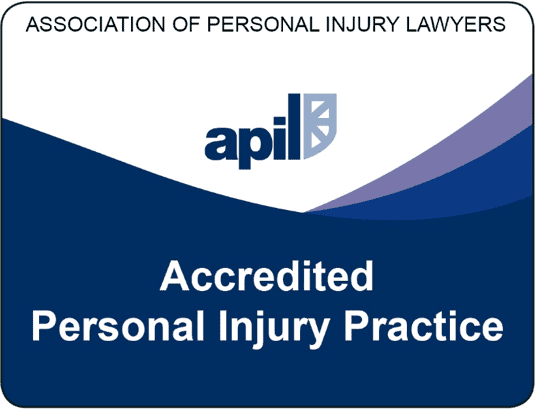Wrongful Birth and Medical Negligence Claims
A US woman’s unusual dispute with an American fertility clinic highlights how a clerical error might lead to a medical negligence claim. In this post, we look at the case and give an overview of medical negligence under Scots law.
Clerical Mix Up
Jennifer Cramblett took the Midwest Sperm Bank to court after she was accidentally impregnated with sperm from a donor different to the donor that she had chosen.
Ms Cramblett and her partner had selected a white man, Donor No 380, to be their sperm donor. Ms Cramblett made her order for six vials of sperm from Donor No 380 over the phone, which the receptionist misheard as No 330. Although the receptionist acknowledged her mistake and confirmed that it had been corrected, the records weren’t updated. Ms Cramblett was therefore given vials from Donor 330 rather than Donor 380. The reason why this case is so controversial is that Donor 330 was African American.
In her original complaint, Ms Cramblett said that she loved her daughter Payton, who is now two years old, very much but that one of her ‘biggest fears is the life experiences Payton will undergo, not only in her all-white community, but in her all-white, and often unconsciously insensitive, family … Payton's differences are irrepressible, and [she] does not want Payton to feel stigmatized or unrecognized due simply to the circumstances of her birth’.
Ms Cramblett asked for around $50,000 in damages due to, amongst other things, ‘stress pain and suffering’ and ‘wrongful birth’.
What is Wrongful Birth?
Wrongful birth is a type of medical negligence claim in which the parents of a child claim that their doctor did not properly inform them of the risks involved in conceiving or giving birth to a child with serious genetic abnormalities.
In this recent case from the US, Judge Ronald Sutter’s main reason for throwing out the claim, heard in the DuPage County Court in Illinois, was that Ms Cramblett’s baby was born healthy, with no genetic abnormalities. Interestingly, however, the claim may be resubmitted on the grounds of general medical negligence.
What is Medical Negligence?
Under UK law, medical negligence is defined as an act or omission by a medical professional that results in harm to the patient. In order to establish a medical negligence claim, you need to prove that the medical professional acted below the standard expected of them and breached their duty of care to you as a patient.
What is a Duty of Care?
A duty of care was established in Scots law by the 1932 case of Donoghue v Stevenson. In this case, a woman suffered a very sore stomach after she had drunk from a ginger beer bottle which had a decomposed snail inside it that could not be easily seen. Although the owner of the café, Mr Stevenson, had not manufactured the bottle of beer, but merely served it, he was held to be liable as he had a duty of care towards Ms Donoghue. Lord Atkin’s explained that you owe a duty of care to your neighbour, which he defines as someone so “directly affected by my act that I ought reasonably to have them in contemplation as being so affected when I am directing my mind to the acts or omissions which are called in question”.
Another facet to the duty of care principle is whether it is fair, just and reasonable to impose a duty. This is arguably more clear-cut in a medical negligence case as the medical professional has knowledge and experience that you may not have to help you when you are unwell or injured.
What is a Breach of Duty of Care?
The test of a breach of duty of care has three parts:
- There must be a voluntary act or failure to act (omission) on the part of the defender
In a medical negligence case, this voluntary act covers a variety of things, including:
- Operating on you without consent
- Not referring you to a specialist
- Diagnosing you incorrectly or a delay in diagnosis
- Failure to take care during surgery (this could involve, for example, performing surgery with unclean equipment, performing unnecessary surgery or accidentally leaving a surgical tool in your body following surgery)
- Performing unnecessary surgery
(2) The act or omission must have resulted or probably resulted in harm to the pursuer or their property
If the injury is highly improbable or could not have been foreseen, then you will not be able to establish a breach of duty of care. The crucial thing is proving that the act or omission caused your injury.
(3) The act or omission constituted negligence
The person who has caused you injury must have been careless through their act or failure to act.
Reasonable Precautions in Medical Negligence Claims
The law recognises that surgery can go wrong but also that not operating can be just as life threatening. Therefore, in pursuing a medical negligence claim, whether or not the medical practitioner took reasonable precautions to prevent you being injured would also be considered. This is also the general test in the law governing personal injury.
What Can Lawford Kidd Do To Help?
This case highlights the diversity of medical negligence and personal injury law.
As outlined above, to have a medical negligence claim, there must have been an act or failure to act by a medical professional. The act or omission must be below the standard of care expected. This is also known as breach of duty.
You usually have three years from the date you discover that your condition or injury may have been caused by medical negligence to make a claim.
If you want to lodge a formal complaint regarding your treatment, you normally have around six months to do so. It is best to lodge a complaint sooner rather than later when things are fresher in your memory. Make sure that you document all treatment and communication given. For more information, read more about medical negligence here.
With Lawford Kidd, you will always receive 100% of the compensation you are awarded for your personal injury, and unlike claims companies, a qualified solicitor will handle your case. You can read one of our case studies here, or call us today on 0808 301 7360.











